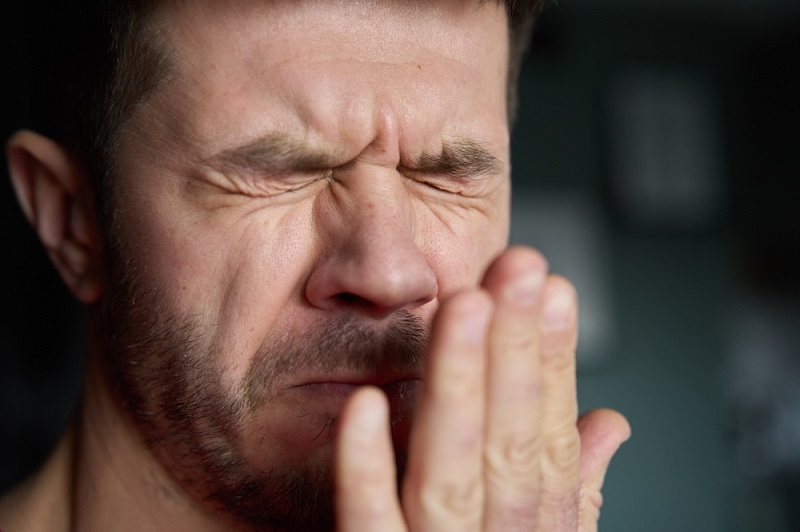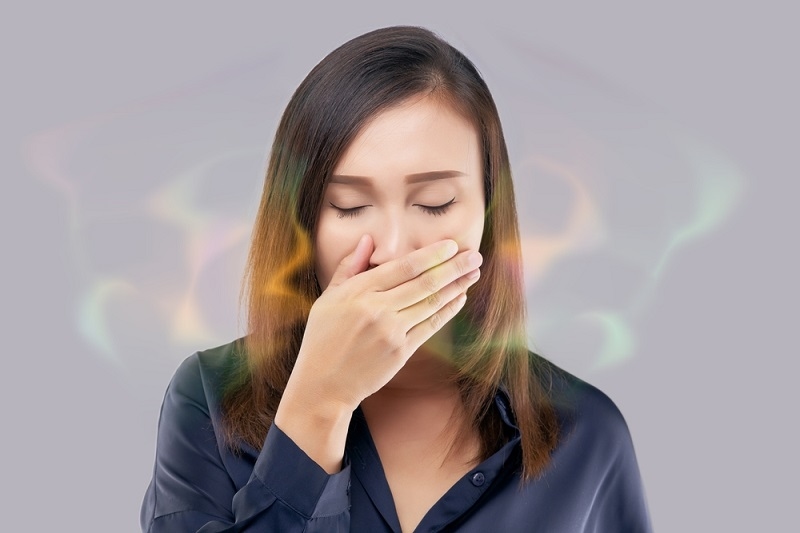
Bad breath is embarrassing, unpleasant, and self-conscious — particularly in intimate interactions. Known medicinally as halitosis, millions of people around the globe are affected. Chronic bad breath or sporadic mouth odor: Find out what causes it and how to get rid of bad breath with these quick-working remedies, and you can be confident and fresh for life.
In this comprehensive guide, we will cover the causes of bad breath, its medical origins, how to prevent it, and some tips for maintaining fresh breath, as recommended by dental professionals.
The majority of causes of bad breath begin in your mouth. Food particles, bacteria, and not brushing your teeth are the most common causes. However, bad breath is not just about brushing your teeth - sometimes bad breath indicates a real health problem.
To summarize the circumstances that cause bad breath:
The most common cause of mouth odor is poor brushing and flossing. When food particles are between your teeth, bacteria break them down and create sulfur compounds — the primary source of foul odors. Failure to clean your tongue also allows bacteria responsible for odor growth to thrive.
Saliva is the mouth's natural cleaner. It cleanses the mouth of food particles and neutralizes acids. Dry mouth provides a breeding ground where bacteria multiply rapidly. Dehydration, medication, and breathing through the mouth at night are causes of dry mouth.
Garlic, onions, and some spices break down to release pungent chemicals that are absorbed by your bloodstream and removed by your lungs. Coffee and alcohol also dry out your mouth and make chronic bad breath worse.
Smoking or chewing tobacco leads to persistent mouth odor and dry mouth. It also increases your risk of gum disease — a major contributor to halitosis.
Sometimes, bad breath causes go beyond oral hygiene. Diabetes, sinus infections, acid reflux (GERD), liver or kidney disease, and respiratory infections can all lead to chronic bad breath.

Diabetes, sinus infections, acid reflux (GERD), liver or kidney disease, and respiratory infections will also cause long-term bad breath. If your bad breath persists despite your regular brushing, you may be experiencing chronic halitosis, a long-term condition. When this occurs, it requires a more in-depth look for underlying issues.
Plaque can build up over an extended period of time, calcifying into tartar and causing inflammation of the gums. The bacteria trapped beneath the gums produce foul-smelling gases that cause chronic bad breath - breath that cannot be disguised with any mouthwash.
Postnasal drip due to sinus infections usually leads to bacterial buildup in the throat and creates foul odors. Tonsillitis and respiratory infections do the same thing.
Gastroesophageal reflux disease, stomach ulcers, and other gastrointestinal issues can release gases that escape through the mouth. These conditions need to be treated to manage halitosis.
In some exceptional instances, causes of bad breath can indicate metabolic disorders such as diabetes or liver disease. The conditions are responsible for producing characteristic odors that result from chemical imbalances in the body.
Lifestyle options significantly contribute to ensuring that your breath remains fresh. Poor dietary practices, dehydration, and poor oral hygiene routine all result in mouth odor as well as halitosis.
Eating a well-balanced diet of fresh fruits, vegetables, and fiber stimulates the production of saliva. Refraining from too much sugar, alcohol, and caffeine slows mouth bacterial growth.
Water flushes food particles and bacteria out of the mouth. Keeping oneself hydrated is one of the easiest and best fresh breath tips for curing recurring bad breath.
Brushing twice a day, flossing, and cleaning the tongue are all essential habits. Antibacterial mouthwashes will also help to reduce the odor-causing bacteria further.
Routine professional cleanings get rid of all of the plaque and tartar that brushing alone cannot get rid of. The dentist will also find early signs of gum disease or infection, which may be one of the greatest contributors to bad breath.
Now that you know what causes bad breath, let’s take a look at some of the top bad breath treatments that will keep you feeling fresh for a significant period of time. These bad breath remedies are everyday practices, natural solutions, and medical interventions.
Brush, at a minimum, for two minutes, twice a day. Use fluoride toothpaste and a soft-bristle toothbrush. Don’t forget to brush your tongue because up to 80% of the halitosis-causing bacteria can be found on the tongue.
Antibacterial and non-alcoholic mouthwashes will kill bacteria that produce odor without drying out your mouth. Rinsing after meals also removes odors from strong foods.
Promote saliva production with sugar-free gum to neutralize mouth odor. Look for gum that uses xylitol to provide extra benefit against cavity-causing bacteria.
Chronic dry mouth helps develop chronic bad breath. Keep a water bottle handy and drink throughout the day. You also want to limit your high caffeine and alcohol intake.
Apples, celery, parsley, and mint are examples of different foods that help keep you breath fresh. Many of them also have fiber that can help dislodge food placed between teeth while helping to promote saliva.
Tobacco is a contributor to halitosis and yellowed, discolored teeth. Quitting smoking will improve your breath and help with your overall oral health.
Coconut oil pulling, green tea rinses, and toothpaste made with baking soda are all natural remedies for bad breath that have been proven to decrease odor-causing bacteria.
Preventing halitosis requires daily dedication. By following these fresh breath tips, you ensure your mouth remains healthy and fresh:
If, after performing these steps and consistently practicing proper oral hygiene, you still have chronic bad breath, you should contact your dentist or physician. Chronic bad breath could indicate a medical issue that has been left untreated.
While a dentist or doctor may provide treatment for chronic or more serious bad breath, treatment will depend on the specific cause of chronic bad breath in your case. Treatment may include:
You should contact a dentist or physician if:
Early treatment enables you to cure both chronic bad breath and any serious underlying disease before it gets worse.
Halitosis affects not only your oral health but also your relationships, work, and self-esteem. The truth is, most people still avoid relationships altogether because of halitosis. When you identify the causes of halitosis, you can take the appropriate steps and start incorporating a simple daily habit to manage it.Good self-esteem starts with a feeling of freshness, and a clean mouth is a quick way to accomplish that.
Here is a daily routine you can use for a fresh breath every single time:
Integrating all this into your daily routine will enhance overall oral hygiene, eliminate halitosis, and provide naturally fresh breath every day.
Understanding what causes bad breath is a crucial component to overcoming halitosis and feeling secure in your everyday life. Improving oral hygiene or addressing an underlying medical issue, treating bad breath requires a well-rounded treatment plan. Drinking enough fluids, eating a proper diet, avoiding tobacco, and following your dentist's maintenance instructions will help you avoid mouth odor and support long-lasting oral health. If you have bad breath that does not go away, ask your dentist or another available oral health technician. Bad breath does have solutions, and this step-by-step, continuous treatment process is how you regain fresh breath. It begins with time and learning about the issues associated with bad breath.
This content was created by AI